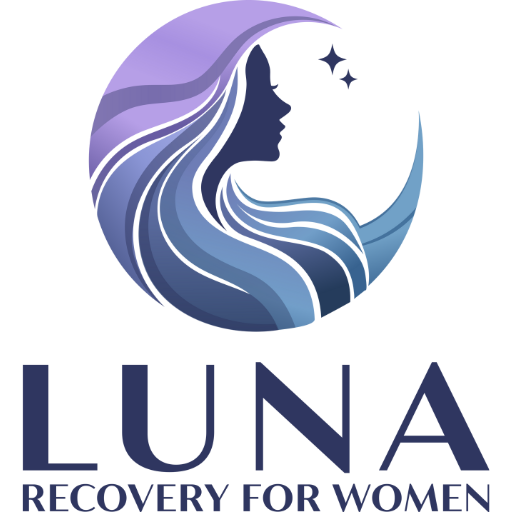Embarking on the journey to recovery is a courageous and life-changing decision. The first 30 days are crucial, as they lay the foundation for long-term success. However, this initial period can also be challenging as you adjust to a new way of living.
Understanding what to expect during these early stages can help you navigate the ups and downs with confidence and build a strong foundation for lasting sobriety.
Detox and Withdrawal

The first step in recovery often involves detoxification, where your body begins to rid itself of alcohol or drugs. This process can be physically and emotionally challenging, especially if you’ve been using substances heavily or for an extended period. During detox, you may experience a range of physical symptoms, such as nausea, sweating, shaking, headaches, and fatigue. These symptoms can vary in intensity and duration depending on the substance and the severity of your addiction.
Alongside physical symptoms, it’s common to experience emotional ups and downs, including mood swings, anxiety, irritability, and even depression. As your body adjusts to life without substances, these emotional fluctuations are a natural part of the healing process. For this reason, detox is best done under medical supervision, especially if you’ve been using substances for a long time or in large amounts. A healthcare provider can help manage withdrawal symptoms and ensure your safety during this critical phase.
At Luna Recovery for Women, we provide detox placement services to help you navigate detox with as much comfort and safety as possible.
Establishing a Routine
Once detox is complete, the next step is to start building a new routine that supports your recovery. Structure and consistency are essential during this period, as they help create a sense of stability and purpose. Establishing a daily schedule that includes regular meals, sleep, exercise, and therapy sessions can help you regain a sense of normalcy and develop healthy habits that promote long-term sobriety.
Therapy is a cornerstone of recovery, and during your first 30 days, you’ll begin attending individual counseling, group therapy, or both. These sessions provide a safe space to explore the underlying causes of your addiction, develop coping strategies, and learn how to manage cravings and triggers.
Additionally, incorporating healthy habits like regular exercise, meditation, or journaling can support your overall well-being and help you stay grounded as you adjust to life without substances.
Building a Support System
Recovery is not something you have to do alone. During your first 30 days, building a support system is essential for staying on track and maintaining motivation. Connecting with others who understand what you’re going through can provide invaluable encouragement and a sense of community. Group therapy and support meetings offer opportunities to share your experiences, listen to others’ stories, and receive guidance from peers who are also on the path to recovery.
In addition to connecting with others in recovery, this is also a time to begin rebuilding relationships with family and friends who can support your sobriety. Open communication and honesty are key to rebuilding trust and strengthening these relationships.
At Luna Recovery for Women, we encourage our clients to involve their loved ones in the recovery process whenever possible, as a strong support system can make a significant difference in long-term success.
Dealing With Triggers and Cravings
One of the biggest challenges during the first 30 days of recovery is learning how to manage triggers and cravings. Triggers are situations, people, or emotions that can tempt you to use substances again. Identifying your personal triggers is the first step in avoiding or managing them. During therapy, you’ll work with your counselor to recognize these triggers and develop strategies for coping without turning to substances.
Learning healthy coping strategies is essential for managing cravings. This might include practicing deep breathing exercises, distracting yourself with a new activity, or reaching out to someone in your support system when you feel the urge to use.
In the early stages of recovery, it’s important to avoid high-risk situations, such as being around people who use substances or visiting places where you used to drink or use drugs. As you grow stronger in your recovery, you’ll learn how to navigate these situations with confidence and maintain your sobriety.
Embracing the Emotional Rollercoaster
The first 30 days of recovery can be an emotional rollercoaster, and it’s normal to experience a wide range of emotions during this time. You may feel relief and hope as you begin your journey, but you may also experience fear, sadness, or frustration as you adjust to a new way of life. Understanding that these feelings are a natural part of the recovery process can help you stay grounded and avoid becoming overwhelmed.
Allow yourself to experience your emotions without judgment, and remember that it’s okay to ask for help when you need it. Celebrate your small successes, whether it’s making it through a tough day without using or completing your first week in therapy.
Each step forward is a victory, and recognizing your progress can help you stay motivated. Be kind to yourself during this time—recovery is not about being perfect, but about making progress and learning from setbacks.
Looking Ahead: Planning for the Future
As you approach the end of your first 30 days in recovery, it’s time to start thinking about the future and setting goals for the next phase of your journey. Continuing treatment beyond the initial 30 days is essential for maintaining long-term sobriety. This might include enrolling in an outpatient program, attending ongoing therapy sessions, or participating in support group meetings. At Luna Recovery for Women, we offer comprehensive outpatient programs designed to support women as they transition from early recovery to long-term success.
Setting realistic, achievable goals can help you stay focused and motivated. Think about what you want to accomplish in the next few months, whether it’s finding a job, reconnecting with loved ones, or exploring new hobbies and interests.
Recovery is about more than just staying sober—it’s about building a fulfilling life that brings you joy and purpose. By focusing on your goals and taking proactive steps to achieve them, you can create a future that’s free from the grip of addiction.
Start Your Recovery Journey With Luna Recovery for Women

The first 30 days of recovery are challenging, but they’re also a time of tremendous growth and transformation. By understanding what to expect and taking proactive steps to manage your recovery, you can build a strong foundation for long-term sobriety. Remember that you don’t have to go through this journey alone—support is available, and reaching out for help is a sign of strength.
If you or a loved one is starting the journey to recovery, Luna Recovery for Women is here to help. Our comprehensive programs are designed to support women through every stage of recovery, from detox and early treatment to long-term sobriety and beyond.
Contact us today to start your journey. With compassionate care, evidence-based therapies, and a supportive community, we can help you reclaim your life and build a future filled with hope and possibility.
